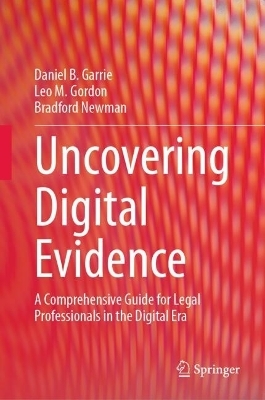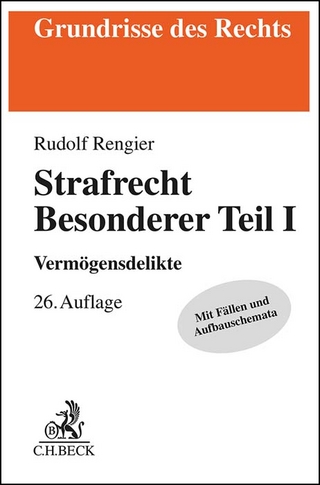
Uncovering Digital Evidence
Springer International Publishing (Verlag)
978-3-031-68117-2 (ISBN)
- Noch nicht erschienen - erscheint am 07.12.2024
- Versandkostenfrei innerhalb Deutschlands
- Auch auf Rechnung
- Verfügbarkeit in der Filiale vor Ort prüfen
- Artikel merken
This book serves as a comprehensive guide for legal practitioners, providing a primer on digital forensic evidence and essential technological concepts. Through real-world examples, this book offers a systematic overview of methodologies and best practices in collecting, preserving, and analyzing digital evidence. Grounded in legal precedent, the following chapters explain how digital evidence fits within existing legal frameworks, addressing questions of admissibility, authenticity, and ethical considerations. The aim of this book is to bridge the digital knowledge gap that often hinders the legal process, empowering readers with the tools needed for effective engagement in tech-related legal matters. Ultimately, the book equips judges, lawyers, investigators, and jurists with the knowledge and skills to navigate the digital dimensions of legal cases proficiently.
Daniel B. Garrie, Esq. is a highly respected mediator, arbitrator, and Special Master at JAMS renowened for his expertise in resolving complex disputes across the US. Daniel has been selected by counsel and appointed by courts to resolve disputes on law and technology and their intersection throughout many fields and practices. Recently, he served as the Special Master for In Re: Facebook, Inc. Consumer Privacy User Profile Litigation. Daniel is also the co-founder of Law & Forensics LLC where he leads the Cyber Security and Forensics Practice teams. Daniel has managed and executed forensic projects and testified in cases related to fintech, blockchain, and eDiscovery. He has written extensively on Artificial Intelligence (AI) and has participated in resolving several disputes involving AI. Outside of his work Daniel is a professor at the Harvard Extension School where he teaches courses on cybersecurity ethics, law, cryptocurrency, and forensics.
Judge Leo M. Gordon was appointed to the U.S. Court of International Trade in March 2006. Judge Gordon currently serves as a District Court Judge sitting by designation in the District of New Jersey, handling mostly complex civil litigation. Judge Gordon has extensive experience as an in-court mediator and settlement judge. He is a frequent participant in CLE programs, with a recent focus on legal ethics and technology, principally issues related to remote work and AI.
Judge Gordon's career is one dedicated to public service. His career began over three decades ago as Assistant Counsel to the Subcommittee on Monopolies and Commercial Law, Committee on the Judiciary, U.S. House of Representatives. In that capacity, Judge Gordon worked on numerous legislative projects involving commercial and antitrust law, civil and constitutional rights, and court reform. Most significantly, he was the principal attorney responsible for the Customs Courts Act of 1980 that created the U.S. Court of International Trade. Following his time with the Judiciary Committee, Judge Gordon served on the staff at the Court for 25 years, first as Assistant Clerk and then Clerk of the Court until his appointment to the bench. Judge Gordon graduated Phi Beta Kappa from the University of North Carolina-Chapel Hill and received his J.D. degree from Emory University School of Law.
Bradford Newman is a partner resident in Baker McKenzie's Palo Alto Office and Chair of the North America Trade Secrets Practice. According to Chambers USA, Brad is a "recognized authority on trade secrets cases" who "is valued for his tenacious, intelligent and thoughtful approach to trade secrets matters." Bradford is the past Chair and current Co-Chair of the AI & Blokchain Subcommittee of the American Bar Association and a Leader of Baker McKenzie's AI and Blockchain practice.
Bradford specializes in matters related to trade secrets, Artificial Intelligence, Decentralized Finance (DeFi), Smart Contracts, Blockchain and Cryptocurrency. Recognized by the California Daily Journal in 2019 as one of the Top 20 AI attorneys in California, Bradford has been instrumental in proposing federal AI workplace and IP legislation that in 2018 was turned into a United States House of Representatives Discussion Draft bill. In 2023, he was invited by the United States Senate to testify as an expert on Artificial Intelligence before a Subcommittee on Artificial Intelligence and the Future of Work. Frequently quoted by the press as a nationally recognized AI expert, Bradford routinely teaches courses on AI to judges and practitioners around the country and has been invited as a guest lecturer on AI at MIT Sloan, and law schools around the country including NYU, Fordham, and UC San Francisco. Bradford is also the author of Protecting Intellectual Property in the Age of Employee Mobility: Forms and Analysis, a comprehensive treatise published by ALM that offers authoritative guidance on
Hardware.- Software.- The Internet.- Cloud Computing.- Mobile Phones.- Digital Forensic Investigations and eDiscovery.- Encryption.- Law Firm Cyber Security.- Artificial Intelligence.- Web 3 0.
| Erscheinungsdatum | 16.11.2024 |
|---|---|
| Zusatzinfo | IX, 277 p. |
| Verlagsort | Cham |
| Sprache | englisch |
| Maße | 155 x 235 mm |
| Themenwelt | Medizin / Pharmazie ► Medizinische Fachgebiete |
| Recht / Steuern ► Strafrecht ► Besonderes Strafrecht | |
| Recht / Steuern ► Strafrecht ► Kriminologie | |
| Schlagworte | Artificial Intelligence Adoption • digital forensics • eDiscovery • Legal cybersecurity risk mitigation • Technology and law • Technology for Attorneys • The future of legal practice |
| ISBN-10 | 3-031-68117-7 / 3031681177 |
| ISBN-13 | 978-3-031-68117-2 / 9783031681172 |
| Zustand | Neuware |
| Haben Sie eine Frage zum Produkt? |
aus dem Bereich


